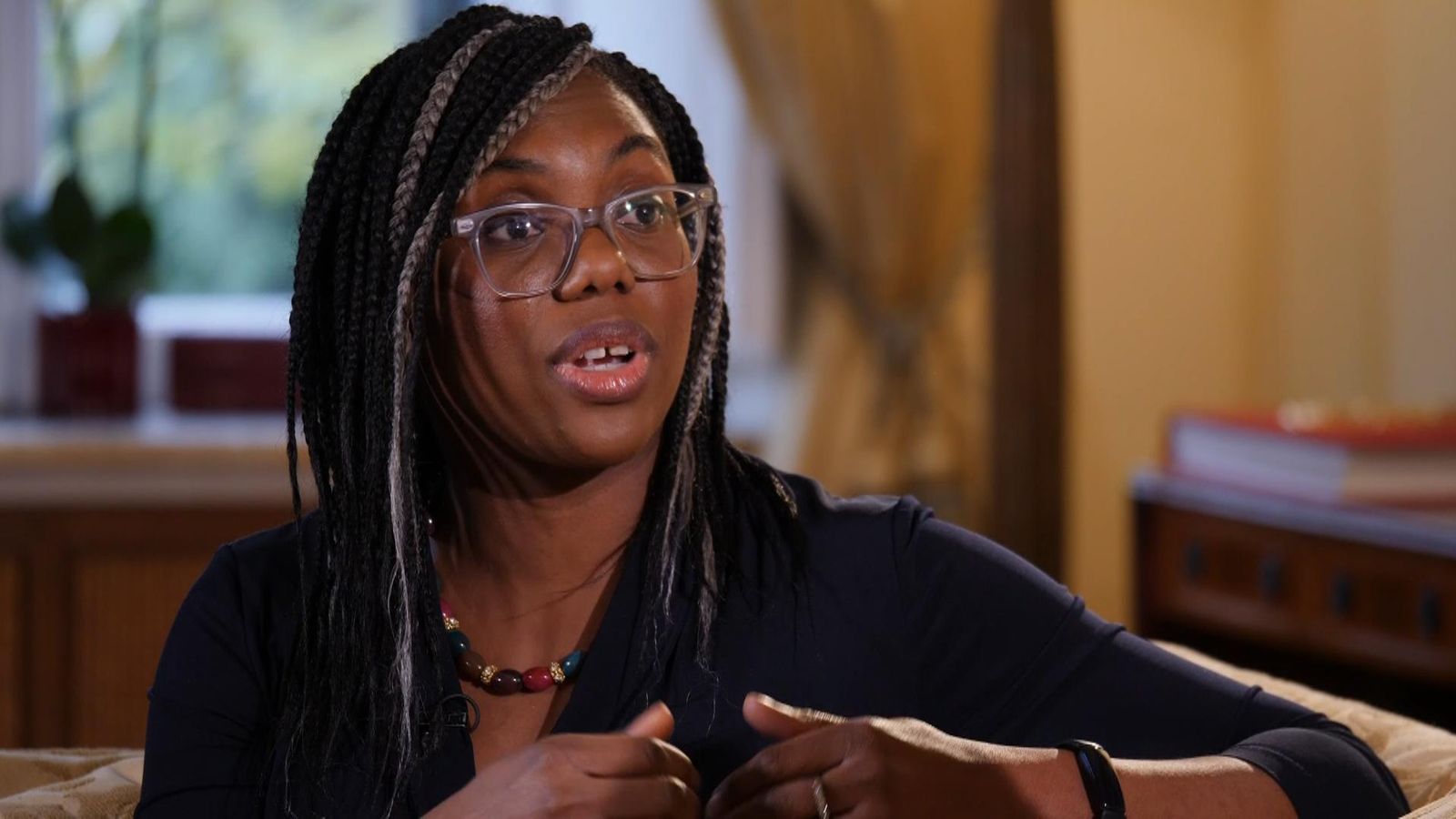The government is considering changing the legal definition of sex to “biological” in a move that could bar trans women from female-only spaces.
Equalities minister Kemi Badenoch wrote to parliament’s human rights watchdog in February asking for its advice on what she described as a “technical and contested area of law”.
In a response published on Tuesday, the Equality and Human Rights Commission (EHRC) said amending the definition of sex under the Equality Act could result in “greater legal clarity” around women-only spaces, hospitals and access to sport.
The recommendation has prompted anger from the LGBTQ+ charity Stonewall, which said it “risks opening yet another chapter in a manufactured culture war that will see little benefit to women, cis and trans alike”.
A source close to Rishi Sunak said the prime minister “remains committed to his campaign pledge” to reinforce rights around biological sex.
They said it is a “sensitive and complicated issue” but Mr Sunak supports Ms Badenoch’s work.
Currently a trans person who is in possession of a gender recognition certificate (GRC) is legally recognised as belonging to the opposite sex.
But Ms Badenoch said the Scottish government’s decision to pass controversial gender reforms had “led to questions being raised” about the operation of the Equality Act and whether the definition of sex is “sufficiently clear and strikes the appropriate balance of interests between different protected characteristics”.
Please use Chrome browser for a more accessible video player
What change could mean
In response, the Equality and Human Rights Commission said while there was “no straightforward balance”, it believed redefining sex would bring “greater legal clarity in eight areas”.
Among these were hospital wards, with the EHRC saying that a “biological definition of sex would make it simpler to make a women’s-only ward a space for biological women”.
On the subject of sport, the organisation said a biological definition of sex “would mean that organisers could exclude trans women from women’s sport without this additional burden” of having to show it was necessary to do so in the interests of fairness or safety.
Changing to a biological definition would also mean single-sex groups could restrict membership to biological women or men, the EHRC said, giving the example of lesbian groups or women’s-only book clubs which would then be able to exclude trans people.
Government ‘should consider potential implications’
Baroness Kishwer Falkner, chairwoman of the Equality and Human Rights Commission, said there should be “due regard to any possible disadvantages for trans men and trans women”.
She said the government should “consider the potential implications of this change” and undertake detailed policy and legal analysis if it decides to move forward.
“There is a clear need to move the public debate on issues of sex and gender to a more informed and constructive basis. This would be welcomed by the many who do not take the polarised positions currently driving public debate,” she said.
Read more UK news:
‘Queen Camilla’ title used officially for the first time
‘Evil’ mother and partner found guilty over death of two-year-old
Passenger dies on flight from Tenerife to UK
The EHRC also said a change in the definition could be “more ambiguous or potentially disadvantageous” when it comes to equal pay provisions, direct sex discrimination and indirect sex discrimination.
In conclusion, it stated the overall conversation on amending the definition warrants further discussion.
“On balance, we believe that redefining ‘sex’… to mean biological sex would create rationalisations, simplifications, clarity and/or reductions in risk for maternity services, providers and users of other services, gay and lesbian associations, sports organisers and employers,” it said.






















